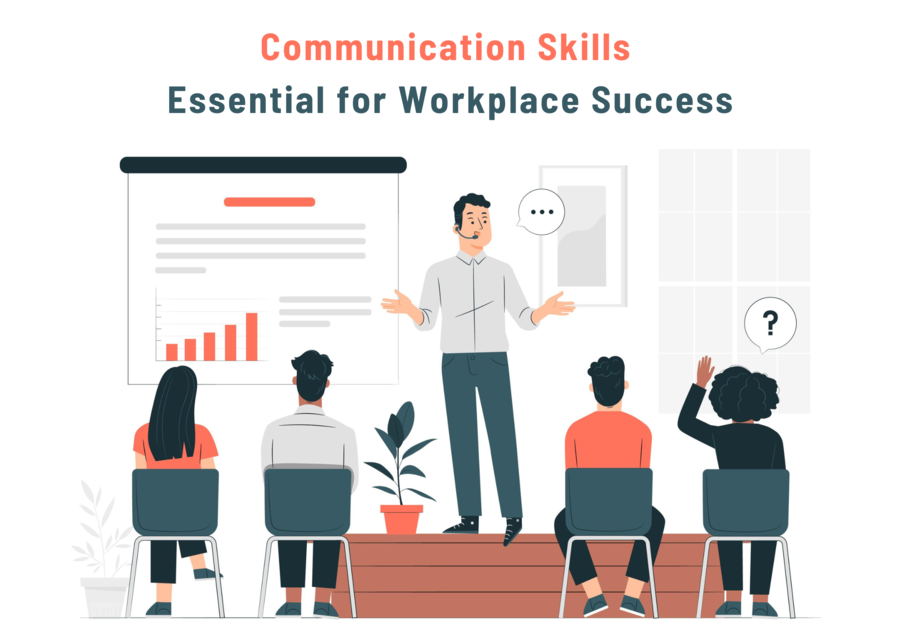Regardless of your industry and location, you must develop your ability to communicate effectively. Not just with colleagues and superiors, employees in the digital age are required to convey ideas effectively and share information efficiently—be it through email, over the phone, on social media, or in person. Effective communication is the critical factor that ensures employees of an organization are engaged and enthusiastic. It offers a feeling of belonging.
Read more: Why is Critical Thinking Considered a Key Skill
Key Communication Skills in the Modern Workplace
- Active listening: Listening to what others convey to you is the first step in the communication process. Communication skill depends on one’s ability to listen and act upon what they hear or read. Without listening to what people say properly, it will not be possible for you to comprehend what is required of you.
- Empathizing with others: Understanding people and empathizing with subordinates and superiors is the next most important aspect of communication skill. Training and development programs offered by modern companies include sessions on this crucial factor.
- Nonverbal communication: In addition to spoken and written words, factors such as your gestures, body language, tone of voice, and eye contact are critically important for sharing information. You need to focus on how you demonstrate these factors while paying attention to others and look for these tell-tale signs while communicating.
- Showing respect: Every individual has to be treated with honor and respect. It is showing that you respect other people’s time and space is a major element that allows you to develop productive communication. It is essential to make them realize that you listen to what they try to convey.
- Having an open mind: Engaging in a mutually agreeable dialogue or written communication helps you understand others’ points of view and accomplish what you expect from them. Being open mind allows you to strike productive and honest communication with others. Be willing to accept suggestions, take feedback, and be ready to try new ways of performing things.
- Understanding the nuances of Nonverbal communication: A major portion of official communication is performed through digital means such as emails, mastering email and online etiquette has become fundamental. Ask yourself whether the receiver requires all that you are trying to convey and share—before attacking them with a plethora of data.
- Give and get feedback regularly: There is always a chance for errors. Mistakes can be identified and corrected only when an individual recognizes them. Feedback is the best way to get to know your performance; it enables you to convey how others have performed. Not just laurels and felicitations, pointing out mistakes and making productive suggestions for corrective measures are also crucial for your team’s success.
- Staying confident and having courage: One major element in communication that makes you stand apart is being confident in all your interactions with others. Staying honest and confident describes your character to others and makes them trust you. Earning the trust and support of teammates and superiors can be achieved by this virtue.
- Be friendly and support others: There are various ways to show that you are a friendly person. You may become attractive and reliable by using a friendly tone and smiling at others. In face-to-face and written communication, personalizing your discussion’s content is essential. Make your agenda understandable to others through caring and friendly words and gestures.
- Choose the right time and a proper medium: The success of achieving what you need to convey to others depends on choosing the right form of communication. Some information can be conveyed through emails or other remote modes, while certain matters need to be conveyed in person only. Professional HR Consulting services will help an organization with this.
Read more: The Importance of Honing Problem-Solving Skills
Wrap-Up
In addition to verbal and nonverbal communication, there are several other elements that an individual or an organizational team must understand. Training & Development programs focusing on communication skills are crucial in today’s corporate environment.









